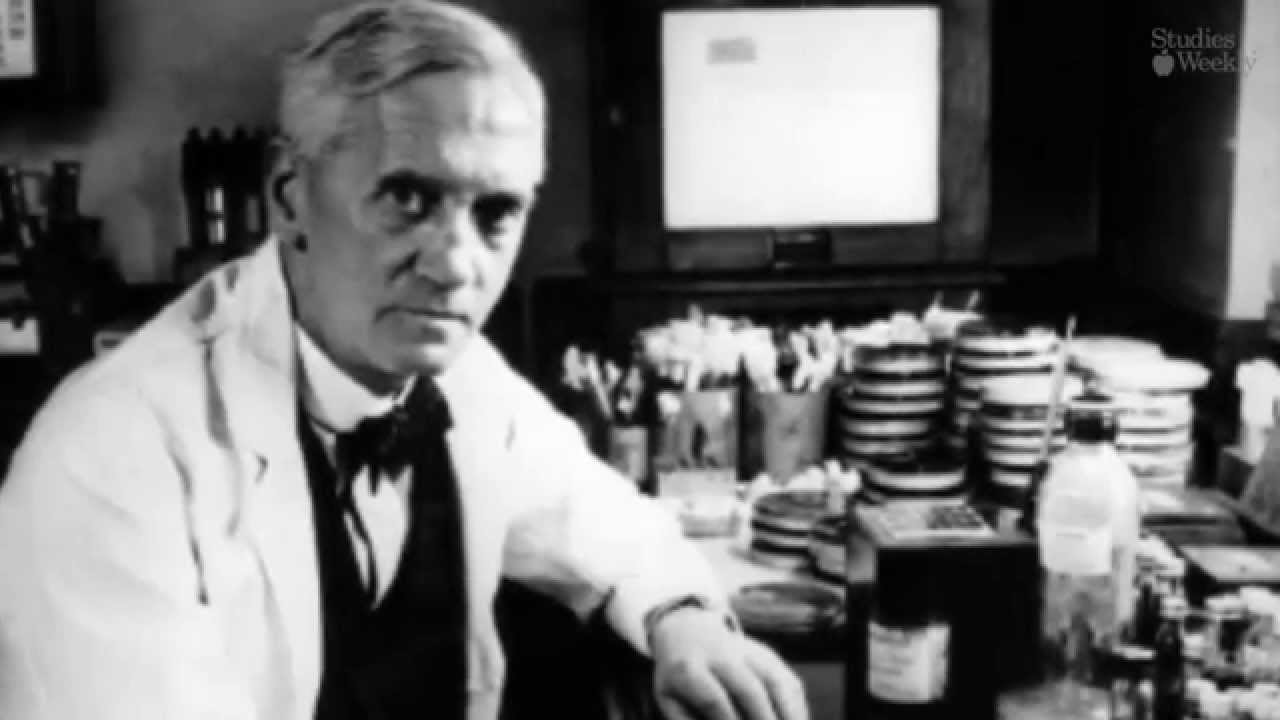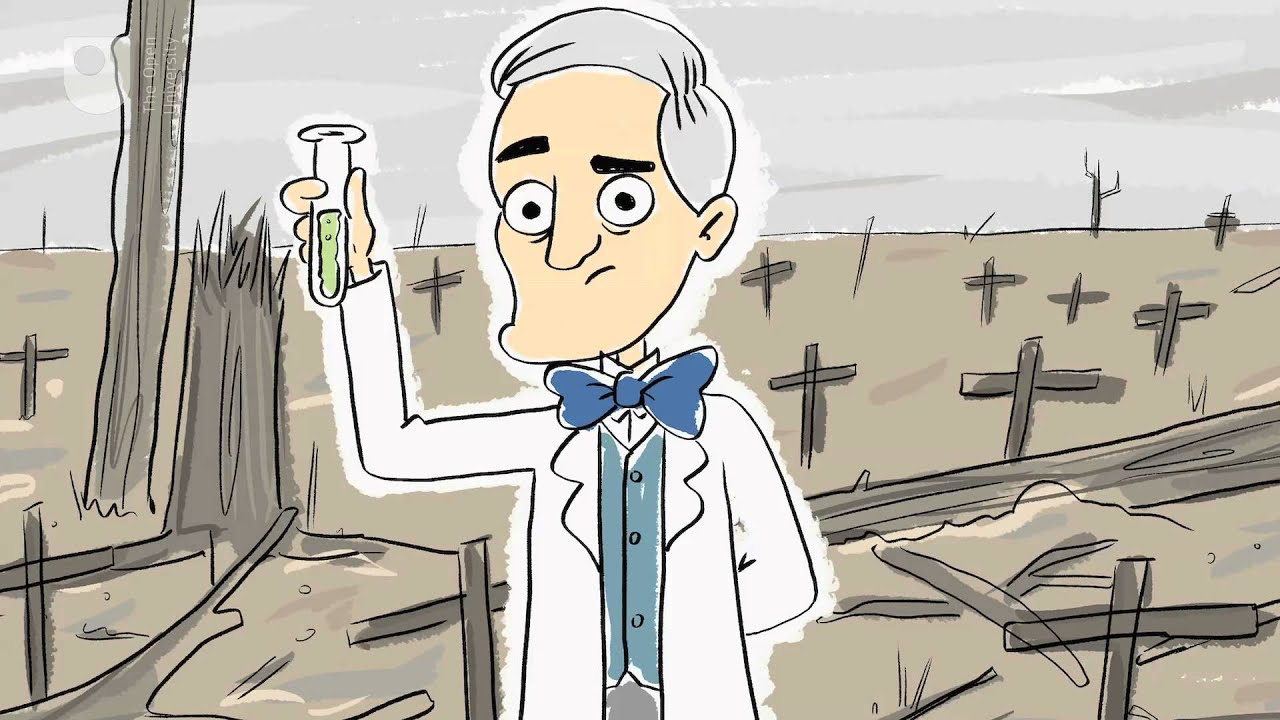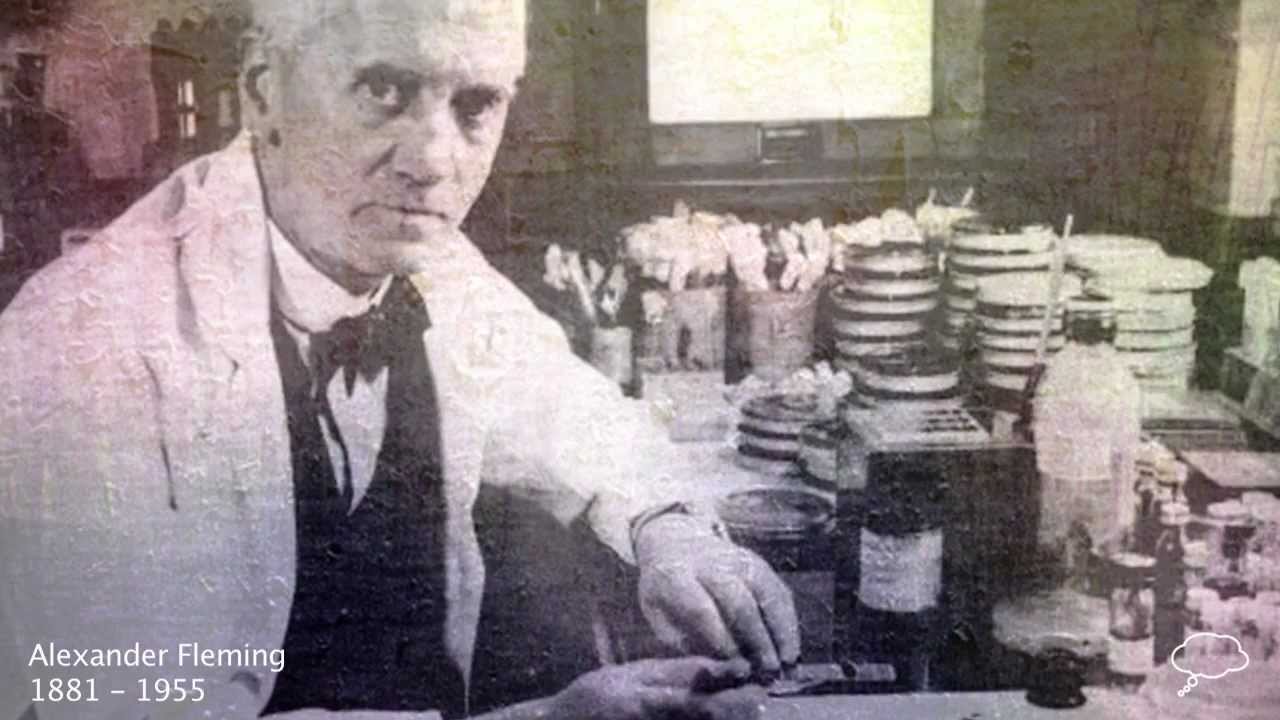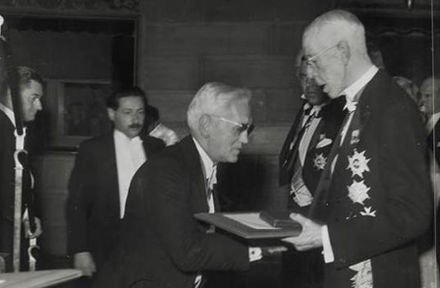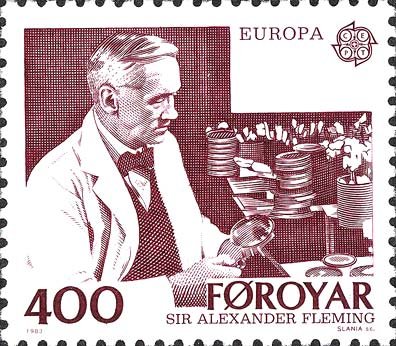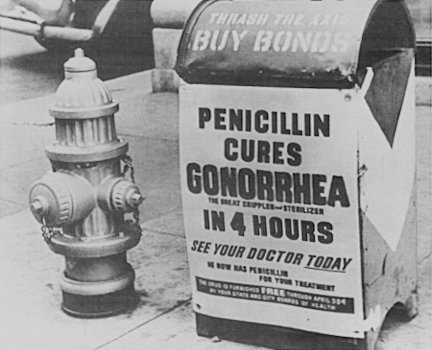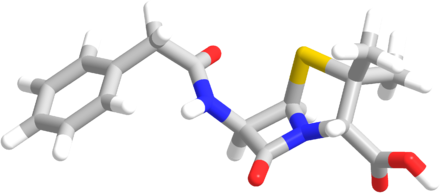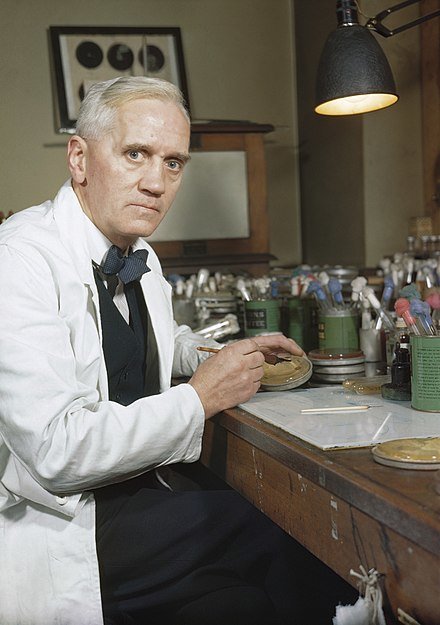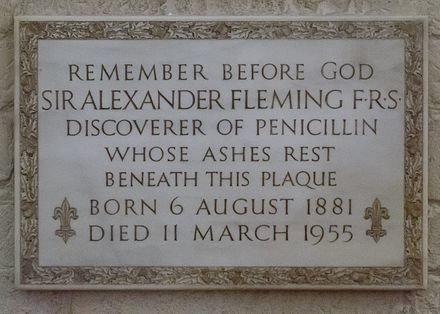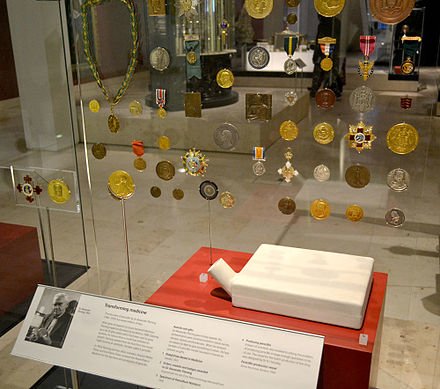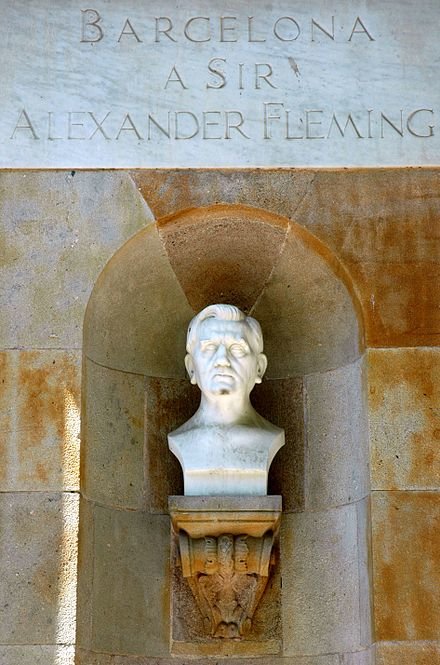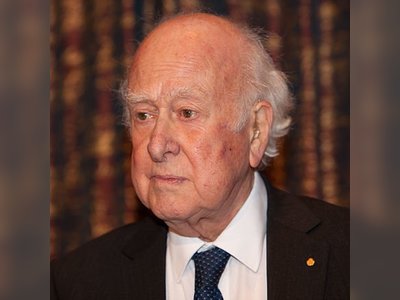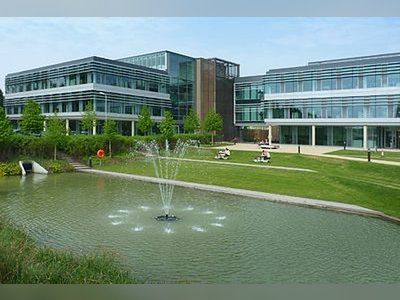British Heritage
Remember, Cherish, Learn.
beta
Dr. Alexander Fleming - Nobel Prize for Penicillin
Contribution of Sir Alexander Fleming to British Heritage.
Sir Alexander Fleming, a Scottish physician and microbiologist, made an indelible contribution to British heritage through his groundbreaking discovery of penicillin. Born on August 6, 1881, in Ayrshire, Scotland, Fleming's legacy is defined by his pioneering work in the field of antibiotics, which revolutionized medicine and saved countless lives worldwide. His remarkable achievements earned him numerous accolades and honors, making him one of the most important figures in British scientific history.
Fleming's journey into the world of medicine began with humble origins. He grew up in a farming family and displayed an early interest in science. After attending local schools, he moved to London and enrolled at the Royal Polytechnic Institution. However, it was only when he inherited some money from an uncle that he was able to pursue a career in medicine. In 1903, Fleming joined St Mary's Hospital Medical School, where he excelled and qualified with an MBBS degree in 1906.
During his medical studies, Fleming became involved in bacteriology and joined the research department at St Mary's. His work under Sir Almroth Wright, a renowned pioneer in vaccine therapy and immunology, allowed him to develop his expertise in the field. In 1908, he earned a BSc degree with a gold medal in Bacteriology and later became a lecturer at St Mary's until 1914.
Fleming's contributions to microbiology were not limited to penicillin. In 1922, he discovered the enzyme lysozyme in his nasal discharge and identified a bacterium named Micrococcus luteus. This discovery was an essential milestone in understanding the body's natural defense mechanisms against bacterial infections.
Fleming's most significant achievement, the discovery of penicillin, occurred in 1928. While studying staphylococci, he noticed that a contaminated culture plate contained a mold that inhibited bacterial growth in its vicinity. This mold, later identified as Penicillium rubens, produced a substance that effectively killed a range of harmful bacteria, including staphylococci and streptococci.
The antibacterial properties of this substance, which he named penicillin, were later confirmed through extensive research and clinical trials. It proved effective against various infectious diseases caused by Gram-positive bacteria. This groundbreaking discovery marked the beginning of the antibiotic era in medicine, and penicillin became the first widely effective antibiotic.
The impact of Fleming's discovery cannot be overstated. Penicillin's introduction into medical practice revolutionized the treatment of bacterial infections, saving countless lives and significantly reducing mortality rates from diseases such as pneumonia, scarlet fever, and meningitis. It became a critical tool for physicians during World War II, saving the lives of wounded soldiers and Allied troops.
For his groundbreaking work on penicillin, Fleming was awarded the Nobel Prize in Physiology or Medicine in 1945, which he shared with Howard Florey and Ernst Boris Chain, who played crucial roles in the drug's development and mass production. His contributions to science and medicine also earned him knighthood in 1944.
Fleming's reputation as a brilliant researcher and his selfless dedication to public health were recognized beyond the scientific community. He was named one of Time magazine's 100 Most Important People of the 20th century in 1999 and voted as one of the 100 Greatest Britons by the BBC in 2002.
Sir Alexander Fleming's discovery of penicillin was a transformative moment in medical history. His pioneering work in antibiotics not only changed the course of medicine but also saved millions of lives around the world. His legacy continues to inspire generations of scientists and healthcare professionals, making him a true icon of British heritage and a symbol of hope and progress in the fight against infectious diseases.
Early Life and Education
Fleming's journey into the world of medicine began with humble origins. He grew up in a farming family and displayed an early interest in science. After attending local schools, he moved to London and enrolled at the Royal Polytechnic Institution. However, it was only when he inherited some money from an uncle that he was able to pursue a career in medicine. In 1903, Fleming joined St Mary's Hospital Medical School, where he excelled and qualified with an MBBS degree in 1906.
During his medical studies, Fleming became involved in bacteriology and joined the research department at St Mary's. His work under Sir Almroth Wright, a renowned pioneer in vaccine therapy and immunology, allowed him to develop his expertise in the field. In 1908, he earned a BSc degree with a gold medal in Bacteriology and later became a lecturer at St Mary's until 1914.
Contributions to Microbiology
Fleming's contributions to microbiology were not limited to penicillin. In 1922, he discovered the enzyme lysozyme in his nasal discharge and identified a bacterium named Micrococcus luteus. This discovery was an essential milestone in understanding the body's natural defense mechanisms against bacterial infections.
The Discovery of Penicillin
Fleming's most significant achievement, the discovery of penicillin, occurred in 1928. While studying staphylococci, he noticed that a contaminated culture plate contained a mold that inhibited bacterial growth in its vicinity. This mold, later identified as Penicillium rubens, produced a substance that effectively killed a range of harmful bacteria, including staphylococci and streptococci.
The antibacterial properties of this substance, which he named penicillin, were later confirmed through extensive research and clinical trials. It proved effective against various infectious diseases caused by Gram-positive bacteria. This groundbreaking discovery marked the beginning of the antibiotic era in medicine, and penicillin became the first widely effective antibiotic.
Legacy and Impact
The impact of Fleming's discovery cannot be overstated. Penicillin's introduction into medical practice revolutionized the treatment of bacterial infections, saving countless lives and significantly reducing mortality rates from diseases such as pneumonia, scarlet fever, and meningitis. It became a critical tool for physicians during World War II, saving the lives of wounded soldiers and Allied troops.
For his groundbreaking work on penicillin, Fleming was awarded the Nobel Prize in Physiology or Medicine in 1945, which he shared with Howard Florey and Ernst Boris Chain, who played crucial roles in the drug's development and mass production. His contributions to science and medicine also earned him knighthood in 1944.
Fleming's reputation as a brilliant researcher and his selfless dedication to public health were recognized beyond the scientific community. He was named one of Time magazine's 100 Most Important People of the 20th century in 1999 and voted as one of the 100 Greatest Britons by the BBC in 2002.
Conclusion
Sir Alexander Fleming's discovery of penicillin was a transformative moment in medical history. His pioneering work in antibiotics not only changed the course of medicine but also saved millions of lives around the world. His legacy continues to inspire generations of scientists and healthcare professionals, making him a true icon of British heritage and a symbol of hope and progress in the fight against infectious diseases.
- Alexander Flemingen.wikipedia.org
